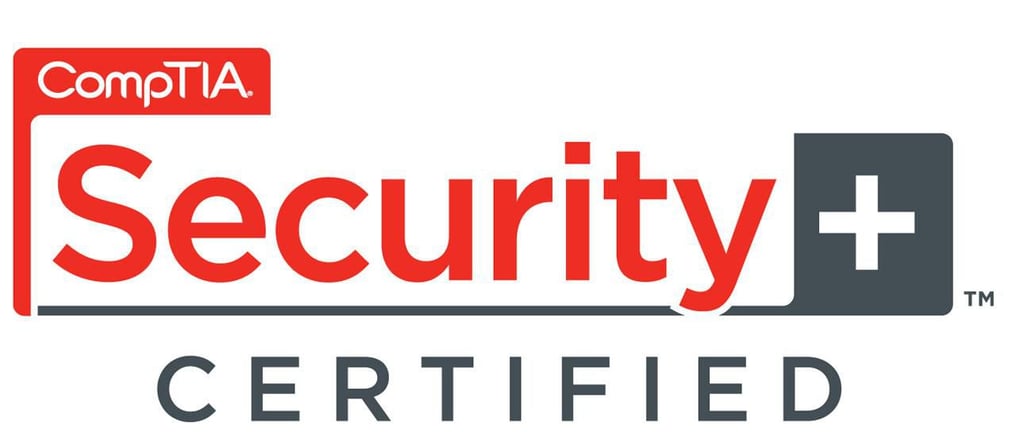Building Foundational Knowledge: ComptTIA Security+
Obtaining the CompTIA cybersecurity certification in 45 days


As a Senior Business Analyst, I've always been fascinated by the intersection of business processes and technology. Over the years, I realized the growing importance of cybersecurity in our increasingly digital world. This curiosity and recognition led me to pursue the CompTIA Security+ certification, a stepping stone towards my ultimate goal of becoming a Cyber Security Engineer.
Why Security+?
The CompTIA Security+ certification is widely regarded as a solid foundation for anyone looking to enter the field of cybersecurity. It covers a broad range of topics, from network security to risk management, and is recognized globally by employers. For someone like me, with a background in business analysis, it offered the perfect blend of technical knowledge and practical skills necessary to transition into cybersecurity.
The Preparation
Preparing for the Security+ exam required dedication and a structured approach. Here’s a breakdown of my preparation strategy:
Study Materials: I started with the official CompTIA Security+ study guide and supplemented it with resources like Jason Dion’s video series, which provided detailed explanations and real-world examples.
Practice Exams: To gauge my understanding, I regularly took Jason Dion’s practice exams. These helped me identify weak areas and get accustomed to the exam format. Websites like ExamCompass and WhizLabs were also useful.
Hands-On Labs: Theory alone wasn’t enough. I engaged in hands-on labs using platforms like CyberSecLabs and CompTIA’s CertMaster Labs. This practical experience was crucial in cementing my understanding of various concepts.
Study Groups and Forums: Joining study groups and forums, such as those on Reddit and Facebook, provided additional support. It was encouraging to interact with others on the same journey, share resources, and discuss challenging topics.
Consistent Schedule: Balancing work and study was challenging, but maintaining a consistent schedule was key. I dedicated specific hours each day to study and review, ensuring steady progress.
Exam Day
Despite thorough preparation, exam day brought its share of nerves. However, I remained focused and confident in my preparation. The exam itself was challenging, with a mix of multiple-choice and performance-based questions that tested both my theoretical knowledge and practical skills.
The Result
Passing the Security+ exam on my first try was an incredibly rewarding experience. It validated the countless hours of study and preparation I had put in. More importantly, it marked the beginning of my journey in the cybersecurity field.
What’s Next?
With the Security+ certification in hand, my next endeavor is to strengthen my networking and Linux skills. These are foundational areas that are crucial for anyone in the field of cybersecurity.
Networking Skills: A strong understanding of networking is essential for identifying and mitigating security threats. I plan to dive deeper into network protocols, infrastructure, and network security measures. I’ll be using resources like Cisco's Networking Academy and various online courses to build a robust networking knowledge base.
Linux Skills: Linux is widely used in cybersecurity for its flexibility and security features. To enhance my proficiency, I’ll be focusing on Linux system administration, command-line tools, and security configurations. Platforms like Linux Academy and practical labs will be instrumental in this learning journey.
Continuous learning and skill enhancement are key in the ever-evolving field of cybersecurity. By focusing on these areas, I aim to build a strong technical foundation that will support my career growth and enable me to tackle complex security challenges effectively.
Final Thoughts
Achieving the Security+ certification is a significant milestone, but it’s just the beginning. Cybersecurity is a constantly evolving field, and continuous learning is essential. For myself as I was considering this path, I plan to stay curious, remain dedicated, and embrace the challenges along the way.
I’m looking forward to the opportunities and challenges ahead as I embark on this new chapter in my career. Thank you for reading and indulging in my journey, and I hope my experience can inspire and guide others pursuing a career in cybersecurity.
